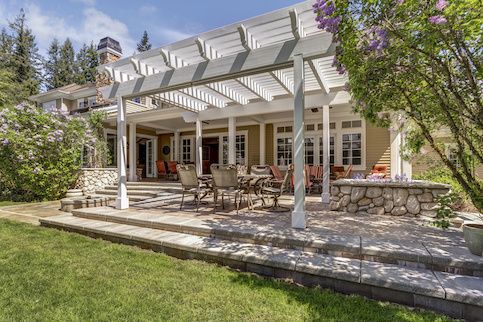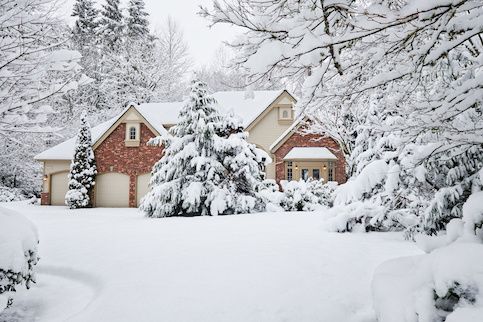A conforming conventional mortgage is the most popular loan type in the U.S. But what if you want to buy a home in an area where the homes exceed the baseline conforming loan limit? If the home is in a designated high-cost area, you can take out a super conforming loan with a higher borrowing limit. These loans are designed for buying homes in markets that are more expensive than the national average. The requirements are the same for a super conforming loan as a standard conforming loan, making these loans easier to get than jumbo loans for most borrowers.
Key Takeaways:
- Super conforming loans have a higher loan limit to help buyers afford homes in specific high-cost areas.
- The requirements for a super conforming loan are the same as for a baseline conforming loan.
- Super conforming loans generally are easier to qualify for when compared with a jumbo or other type of nonconforming loan.
What Is A Super Conforming Loan?
A super conforming loan is a conforming loan with a higher borrowing limit designed for markets where home prices are higher than the national average.
Super conforming loans are available either as a fixed-rate or adjustable-rate mortgage. As with regular conforming loans, a fixed loan will have a set interest rate for the duration of the loan, and an ARM has a rate that can fluctuate with the market.
Like regular conforming loans, super conforming loans follow the same path when qualifying buyers. There is a minimum credit score, required debt-to-income ratio and down payment. Individual lenders may set their own specific requirements, so it can be advantageous to compare the terms across a few lenders to find the best option for your unique situation.
Conforming loans provide advantages for lenders as well. Lenders can sell conforming loans to Fannie Mae or Freddie Mac, which reduces their risk and frees up funds to provide more loans. Fannie and Freddie package the loans they buy into mortgage-backed securities and sell them on secondary markets.
What’s Your Goal?
Buy A Home
Discover mortgage options that fit your unique financial needs.

Refinance
Refinance your mortgage to have more money for what matters.
Tap Into Equity
Use your home’s equity and unlock cash to achieve your goals.
Super Conforming Loan Limits
The primary requirement for a conforming mortgage is the loan limits, which are established each year by the Federal Finance Housing Agency. The FHFA sets a baseline limit that applies in most areas of the country, as well as a high-cost limit for counties where the local median home value is at least 115% of the baseline conforming loan limit. Loans where the high-cost limit applies are called super conforming mortgages.
For example, the maximum baseline loan amount for 2025 for a single-family home is $806,500. The limit for high-cost areas is $1,209,750. This higher limit allows home buyers in expensive areas to use a conforming loan to buy a home. The FHFA sets limits for homes with up to four units.
Conforming and Super Conforming Loan Limits for 2025
| Number Of Units | Baseline Conforming Loan Limit | Super Conforming Loan Limit |
|---|---|---|
| 1 | $806,500 | $1,209,750 |
| 2 | $1,032,650 | $1,548,975 |
| 3 | $1,248,150 | $1,872,225 |
| 4 | $1,551,250 | $2,326,875 |
How Do You Know You Need A Super Conforming Loan?
Super conforming mortgages are available only in designated high-cost areas. You can follow this link to learn which counties in your area are considered high-cost areas that qualify for super conforming loans.
Ready To Become A Homeowner?
Get matched with a lender that can help you find the right mortgage.
Super Conforming Loan Requirements
Requirements for super conforming loans are set by the FHFA and are the same as for baseline conforming loans.
Minimum Down Payment
Down payment requirements vary by loan type and the number of units in the home you’re borrowing. You can put down 3% of the purchase price for a single-unit property if you’re getting a fixed-rate mortgage. If you’re buying a single-family home with an ARM, you need 5% down.
If you’re buying a home with two units, such as a duplex, you need 15% down. And if you’re buying a three- or four-unit property, you need a down payment of 20%.
Minimum Credit Score
Borrowers applying for a super conforming loan need a credit score of at least 620.
Maximum DTI Ratio
Your DTI ratio shows how much of your income is earmarked to pay debts. Your DTI ratio shouldn’t exceed 50% if an automated system is underwriting your loan. If you ask for manual underwriting, your DTI ratio should be less than 36%. However, if you meet specific qualifications, that limit can increase to 45%.
Property Requirements
Super conforming loans can be used to buy a single-family home, condominium, townhouse, second home, co-op home or investment property.
Private Mortgage Insurance
If you make a down payment of less than 20% of the purchase price, you must pay for private mortgage insurance. PMI compensates the lender if you default on your mortgage. Once you have at least 20% equity in your home, you can stop paying for PMI.
Closing Costs
Buyers should budget 2% to 5% of the purchase price to cover loan fees, home inspections, appraisals and other closing costs.
Take The First Step To Buying A Home
Find a lender that will work with your unique financial situation.
Super Conforming Loans Vs. Jumbo Loans
The main difference between super conforming and jumbo loans is that jumbo loans don’t meet the requirements for conforming loans. In the case of jumbo loans, they exceed the conforming loan amount and can be used to buy more expensive homes.
As a non-conforming loan, jumbo mortgages have no standard requirements and lenders are free to set their terms. These non-conforming loans cannot be sold to Fannie Mae or Freddie Mac, so lenders are taking all the risk, and they charge higher interest rates to compensate for that. This means that your costs for a jumbo loan can be considerably more than what you would pay for a conforming or super conforming loan. Buyers generally need excellent credit and a sizable down payment to get a jumbo loan.
Super conforming loans are still conforming loans that meet FHFA guidelines. By adhering to these guidelines, lenders can sell super conforming loans to Fannie Mae or Freddie Mac.
Should You Get A Super Conforming Loan?
Every buyer’s situation is unique and is a mix of factors, including the location and price of the home they want to buy, their income, DTI ratio, and how much debt they feel comfortable taking on. The table below outlines a few pros and cons of super conforming loans to consider when evaluating if this loan is right for you.
Pros And Cons Of Super Conforming Loans
| Pros | Cons |
|---|---|
| Easier to qualify for with a steady income, good credit score, and down payment | They are less flexible because they adhere to government standards |
| Low interest rates because they meet government standards | Mortgage insurance requirements if the down payment is less than 20% |
| May process faster | Strict loan limits |
How To Apply For A Super Conforming Loan
When you apply for a super conforming loan, you need to gather the same documents you’d need for a regular conforming loan, such as pay stubs, tax documents and bank statements. It’s also good to check your credit report to ensure no errors.
Applying for a loan may mean saving enough to afford the minimum down payment and closing costs. Once you’ve put together the necessary funds and documents, you may want to compare lenders to find the best terms for your loan, as different lenders may be able to offer a variety of loan types that may meet your needs.
FAQ
Here are answers to common questions about super conforming loans.
The Bottom Line
Super conforming loans can be a boon to home buyers looking at properties in high-priced housing markets. Lenders may be able to offer better terms – competitive interest rates and smaller down payments – to applicants who adhere to super conforming loan limits than they would for a jumbo loan or another non-conforming loan. If you want to avoid higher interest rates that often come with non-conforming loans, a super conforming loan may be one of the types to consider.
Dan Rafter contributed to the reporting of this article.

Karen Idelson
Karen Idelson is an Editor at Quicken Loans. She has contributed to the Los Angeles Times, Variety, Animation Magazine, The Dallas Morning News, the Houston Chronicle, The Arizona Republic, Women’s Wear Daily and The DGA Quarterly, among other publications. As an experienced speaker and moderator, Karen has also hosted dozens of panels including several for the hit ABC series “Lost” in the legendary Hall H at Comic-Con, as well as panels about business trends at the World Animation & VFX Summit, SXSW and Variety’s Entertainment Technology Summit.












